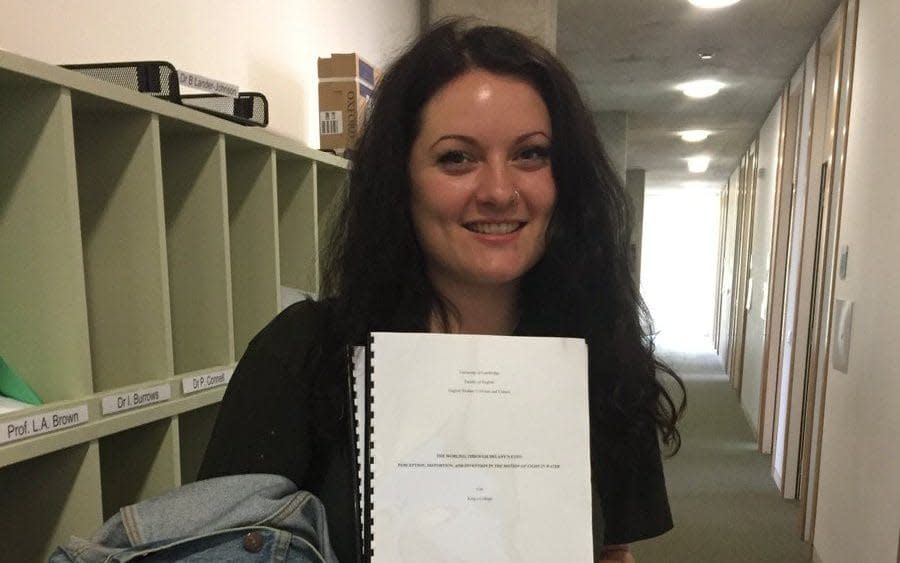Cambridge University accused of racism for allowing non-black lecturer to read N-word aloud

Cambridge University has been accused of racism for allowing a non-black lecturer to read aloud the N-word from a passage in class, as a PhD student quits in protest.
The 800-year-old institution was criticised by 26-year-old Indiana Seresin who said that as a white student, she had “benefited from the structural racism” of the university.
In a “withdrawal statement” that she published online, Ms Seresin explained that she felt she had an “imperative” to leave Cambridge where she had been working on a Government funded doctorate about contemporary American artists and writers.
She said she has witnessed an “accumulation” of racist incidents during her time at the university, and went on to describe an incident where an English lecturer “repeatedly read aloud the n-word during our class discussions”.
Ms Seresin said that a black friend had emailed the lecturer to explain that she did not feel comfortable hearing non-black lecturers saying this word aloud.
But she told how rather than receiving an apology, the friend was “patronisingly told that she did not understand the context in which the word was being used”.
Ms Seresin explains that the disagreement escalated and a group of students, including herself, had “multiple meetings” with the chair of the English faculty about it.

They were also invited to raise the issue at the Teaching Forum, where academics and students meet to exchange views. Ms Seresin and her peers found the experience of speaking in front of senior faculty members “intimidating”, adding that they felt as though they were on trial.
“Many of those present seemed simply unable to comprehend the difference between a black writer reclaiming the n-word and a nonblack Cambridge lecturer or student saying it aloud in class,” she said.
“We also faced hostility regarding the idea that different rules applied to black and nonblack lecturers, even though beyond Cambridge this is a widely accepted principle and for obvious reasons does not constitute a double standard.”
Ms Seresin explains how this incident - as well as the lack of black lecturers and postdoctoral researchers at Cambridge and her pessimism about the progress of efforts to “decolonise” the curriculum - left her convinced of the “pervasive” racism.
Ms Seresin acknowledged that her decision to leave Cambridge mid-way through her PhD “comes from a position of privilege, including racial privilege”, adding that those who remain at the university need not be “condemned for their complicity”.
Ms Seresin, who was educated at Camden School for Girls, a former grammar school in north London which counts the actress Emma Thompson and the ex-Spice Girl Geri Halliwell among it alumni.
She went on to read Comparative Literature and Studies of Women, Gender, and Sexuality at Harvard University, and then completed an MA at Cambridge before starting her doctorate.
A Cambridge University spokesman said: “The Teaching Forum, which included students, met and following a well-informed exchange of views it was decided that there should be no prescriptive rules on what language is appropriate to reference when reading from texts, but that academics should consider the contemporary and political discourse around particular words or terms.”
The spokesman added that the university strives to create a culture “free from racism, discrimination, prejudice and harassment”.
They said they have introduced a number of prevention initiatives and anonymous reporting options to make it easier for staff and students to report harassment or discrimination.
Want the best of The Telegraph direct to your email and WhatsApp? Sign up to our free twice-daily Front Page newsletter and new audio briefings.

